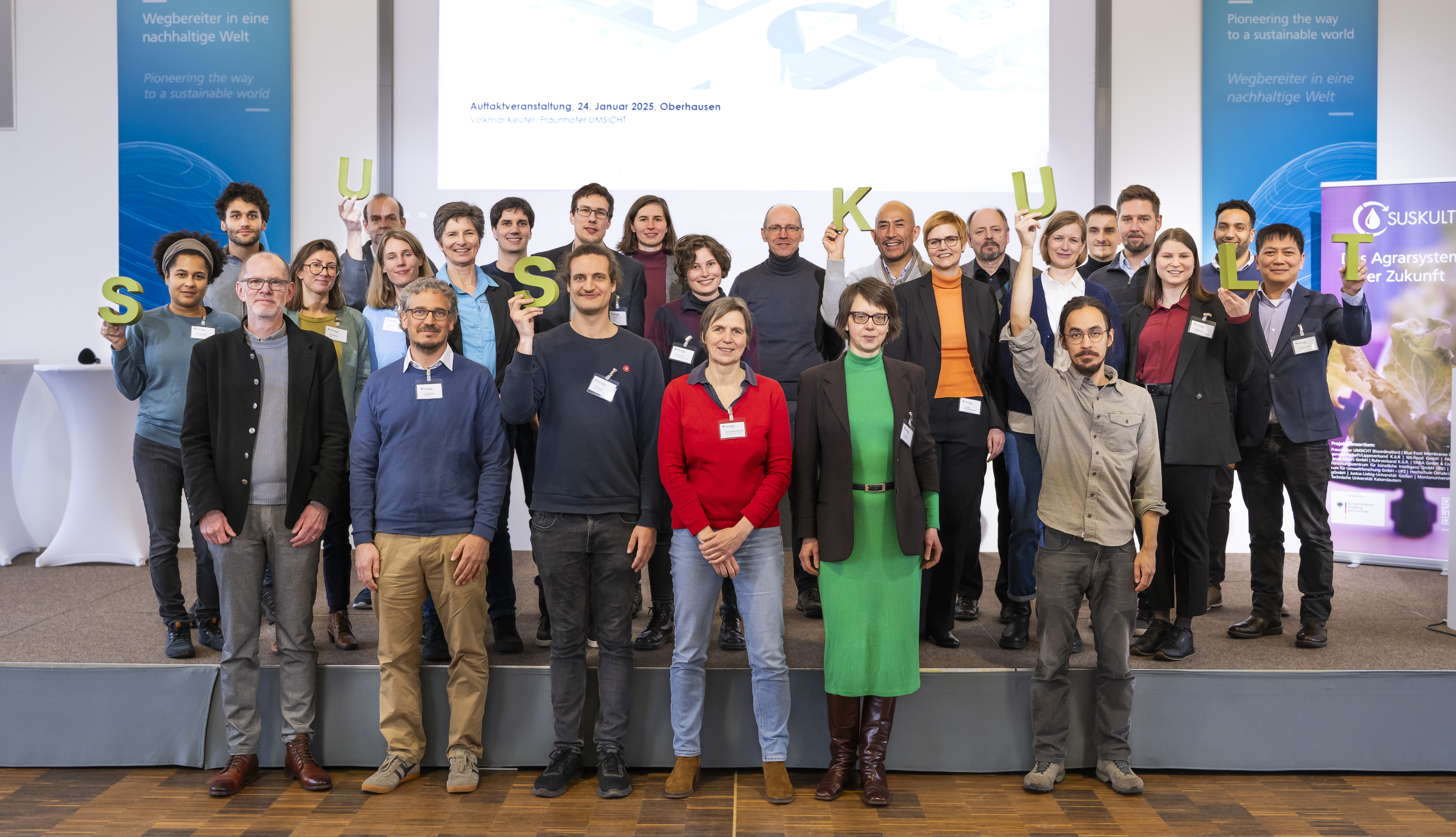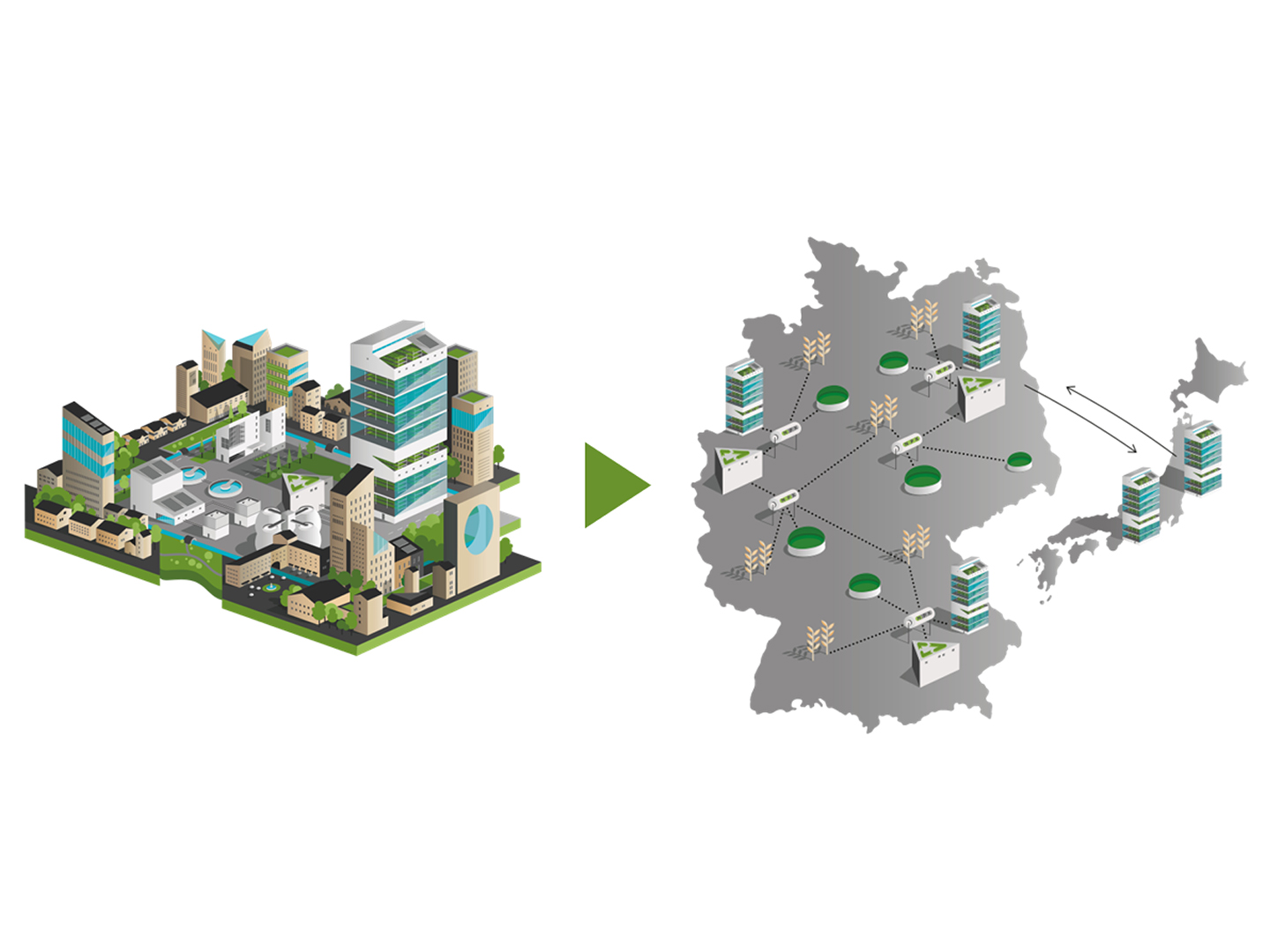SUSKULT – Funding phase 2
Agricultural system of the future continues to take shape
An opportunity for nutrient-recovering agricultural production that has received little attention to date and is indispensable for Germany on the way to a genuine bioeconomy. The SUSKULT vision continues to gain in importance. In the second funding phase, the aim is now to further optimize the novel hydroponics-based production system. With the clear aim of laying the foundations for its successful establishment on the market.
The international community is no longer on track to achieve the Sustainable Development Goals (SDGs) by 2030. This is shown by the Global Sustainable Development (SDG) Report 2023[1]. In addition to advancing climate change, the Covid-19 pandemic and violent conflicts are responsible. The effects of Russia's war of aggression against Ukraine underline the high dependence of agricultural production in Germany and the European Union on imported resources such as energy and fertilizers. At the same time, current agricultural systems are partly responsible for exceeding the planetary boundaries.
A rethink and new structures in the agricultural sector are out of the question. Future agricultural systems must be circular, sustainable and resilient in order to meet the challenges of global supply chains, finite phosphorus resources, high energy requirements and water and soil pollution. The joint research project SUSKULT has been researching urban, cycle-based agricultural production since 2019. "On the one hand, locations for this type of production require local nutrients, water and energy. At the same time, they must meet society's increasing demands for product quality, resource conservation and regionality," explains SUSKULT project coordinator Volkmar Keuter from Fraunhofer UMSICHT. Over the past five years since the start of the project, a total of 15 partners – including universities and research institutes as well as institutions from industry, business and administrative staff – have laid the scientific foundations for the project and developed individual building blocks.
SUSKULT demonstration plant at the Emscher estuary wastewater treatment plant
These components have now been combined into a process chain in a demonstration plant and are being tested in practice. The plant is located at the Emscher estuary wastewater treatment plant in Dinslaken, which is operated by the Emschergenossenschaft and is one of the largest of its kind in Europe. In the SUSKULT vision, wastewater treatment plants become so-called NEWtrient® centers that supply all the resources – nutrients, CO2, water and energy – required for the cultivation of horticultural products. And all this with only short distances to the consumer. Wastewater is converted into NPK-containing liquid fertilizer (NPK: nitrogen, phosphorus and potassium), which in turn can be used to cultivate vegetables and lettuce, for example, as well as health-promoting foods such as sweet potatoes and moringa. Water lentils can also be produced, which have a high vitamin content and serve as a regional soy substitute. "Vertical cultivation takes place indoors, protected from environmental influences – this saves space and is independent of the season," says Volkmar Keuter.
SUSKULT 2.0: the NEWtrient® transformation
Following the successful completion of the first funding phase, the second phase of SUSKULT is now starting. The kick-off took place at the end of January on the premises of Fraunhofer UMSICHT in Oberhausen. The original approach of the NEWtrient® center is to be expanded into a NEWtrient® transformation. In addition to the resource potential of wastewater treatment plants, other resources such as fermentation residues will also be tapped. Mixed together, they can be used as liquid fertilizer both for vertical farms in urban centers (fresh vegetables and protein-containing plants) and in field cultivation (perennial plants). Volkmar Keuter: "Our goal is to create a nationwide network of different centers in Germany that will ensure plant cultivation based on domestic resources in the future - largely independent of imports and unforeseen events."
Research and development work in the second phase of the SUSKULT project is based on four guidelines:
- Optimization – further development of the original SUSKULT approach
- Establishment – development of market access measures for SUSKULT products
- Roll-out – development of measures and technologies outside the original approach
- Internationalization – valorization of the SUSKULT approach on an international level
To this end, parts of the project consortium have been reorganized. The interdisciplinarity of the various consortium partners has proven to be very successful in the first project phase – and will remain so. In future, the partners Emschergenossenschaft/Lippeverband, REWE and Yara will expand their activities in the central "SUSKULT recyclates" and "food" utilization channels. New partners include the Wuppertal Institute, which is responsible for prospective sustainability assessment, and Japan's Chiba University. The latter is considered a pioneer in the field of vertical farming and plays a key role in researching the internationalization of the SUSKULT approach. The University of Münster is also part of the joint research project with immediate effect. It is investigating the use of SUSKULT recyclates in field cultivation and strengthening risk research. "We working together to establish our vision in Germany and beyond," says Volkmar Keuter. "The project consortium is convinced that SUSKULT has the potential to make Germany less dependent on imports in the food supply chain (resources and food) in the future. We can also play an important part in supplying the population with high-quality, regional food.
[1 ]UN. Global Sustainable Development Report 2023: Advance, Unedited Version, June 14, 2023. Available online: https://sdgs.un.org/sites/default/files/2023-06/Advance%20unedited%20GSDR%2014June2023.pdf (accessed on July 20, 2023).
Last modified:
 Fraunhofer Institute for Environmental, Safety and Energy Technology UMSICHT
Fraunhofer Institute for Environmental, Safety and Energy Technology UMSICHT
